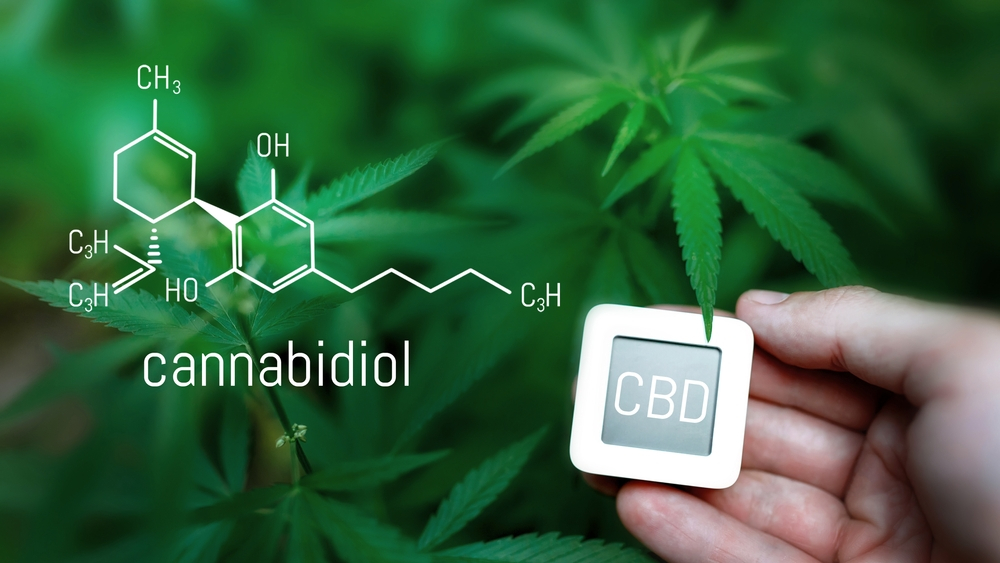- August 16, 2023
- by Shalini Murmu
- Addiction
In a world where the snares of addiction lurk, countless people find themselves in the addiction traps for which the search for effective treatments remains an ongoing quest. In recent years, a glimmer of hope has emerged in the form of cannabidiol, better known as CBD. This non-psychoactive compound derived from the cannabis plant has garnered significant attention for its potential therapeutic applications. A groundbreaking study has now suggested that CBD could play a pivotal role in curbing one of the most devastating addictions humanity faces: heroin addiction. Let’s understand the details of this study a little closer.
Heroin, an opioid derived from morphine, has a potent and highly addictive nature, making it one of the most challenging substances to get over with. Its grasp extends far beyond the physical effects, often infiltrating every aspect of a person’s life, tearing apart families and communities altogether.
Promising Potential Of CBD
CBD has captured the spotlight in extensive research endeavors that doesn’t trigger the typical cannabis-induced “euphoria” in contrast to tetrahydrocannabinol (THC). It has seized considerable interest due to its potential healing attributes, encompassing various conditions such as anxiety, depression, epilepsy, and chronic pain. The scientific community’s attention is currently shifting to examining its possible contribution to the treatment of addiction.
The study investigating the potential of CBD in substance abuse treatment to mitigate heroin addiction employed a double-blind, randomized controlled trial design. A cohort of heroin-dependent individuals was selected based on specific inclusion criteria. The participants were randomly allocated into two groups: the CBD treatment group and the placebo group. The CBD group received oral CBD treatment, with dosages tailored to body weight, over a span of eight weeks. The placebo group received an identical-looking oral placebo. Baseline evaluations included addiction severity assessments, measurement of withdrawal symptoms using standardized scales, and neuroimaging scans to track neural activity changes.
Throughout the study, participants opioid cravings, withdrawal symptoms, and adverse effects were consistently monitored. Weekly therapy sessions were also conducted to offer cognitive-behavioral assistance. Post-treatment assessments included similar measurements as baseline evaluations. Data analysis involved rigorous statistical techniques, including ANOVA and correlation analyses, to compare the differences between the CBD and placebo groups in terms of addiction severity reduction, changes in withdrawal symptoms, and alterations in neural activity patterns. The study’s findings provide preliminary evidence that CBD administration, in conjunction with cognitive-behavioral therapy, may have a potential role in reducing heroin addiction severity and associated withdrawal symptoms, although further research with larger sample sizes is required to establish its clinical significance.
Discovered Aspects
People who were given non-psychoactive CBD medication showed less craving in response to drug-related cues, compared to those who received a placebo. Especially in those who got a greater dosage of CBD, this decrease in craving remained for at least a week after treatment, showing persistent effectiveness. Notably, CBD administration also led to lowered stress indicators following exposure to drug cues, including decreased heart rate and salivary cortisol levels. Moreover, subjects who received CBD reported decreased anxiety in comparison to those given a placebo, although the distinction in anxiety levels between low-dose and high-dose CBD recipients was not statistically significant. Notably, CBD had no discernible effect on cognitive or positive affect assessments.
Holistic Approach To Addiction Treatment
CBD presents an exciting avenue for research and potential integration into a comprehensive addiction treatment approach. Addiction involves intricate interactions among biological, psychological, and environmental factors. Effective treatment necessitates that mental health experts within drug rehabilitation facilities comprehensively attend to these multifaceted dimensions.
A holistic addiction treatment program that includes CBD may be able to alleviate the drug’s psychological dependence. Firstly, its potential to reduce anxiety and alleviate withdrawal symptoms could facilitate the detoxification process, making it more bearable for anyone seeking addiction recovery. Moreover, by targeting the brain’s reward system, CBD might aid in rewiring the neural pathways associated with addiction, helping to weaken the pull of substances like heroin.
Road To Recovery
Although the findings of the research exhibit undeniable promise, it’s crucial to acknowledge that a considerable and committed journey lies ahead in the quest to conquer heroin addiction. These outcomes underscore the possibility of CBD playing a part in the prevention of relapse within the realm of heroin addiction. The study’s stringent methodology paves the way for a potential blueprint for forthcoming investigations into cannabinoids and their prospective contributions to the treatment and recovery from opioid use disorder.
North America Behavioral Health Services
Want to help someone with heroin addiction? Connect with top mental health professionals with North America Behavioral Health Services by your side. Reach out to us around the clock, and gain access to expert insights on navigating addiction recovery and exploring the range of treatment possibilities. Your first step can make all the difference. Contact us today.
















